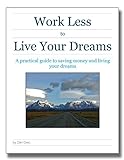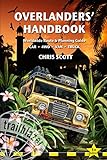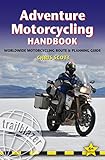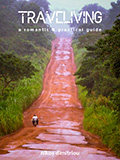Overland Germany Travel
| WikiOverland is growing. We only have Gas and Diesel prices for Germany right now. If you know more about Germany, please update the sections below by clicking edit. |
Currency to display:
Contents
- 1 Visiting Germany
- 2 Entering Germany with a Car or Motorbike
- 3 Driving in Germany
- 4 Gas and Diesel price in Germany
- 5 Safety and Security Considerations
- 6 Camping in Germany
- 7 Navigation
- 8 Special Overland Travel interests
- 9 Vehicle Maintenance
- 10 Buy or sell a car or motorbike in Germany
- 11 References
- 12 Helpful External links
Visiting Germany[edit]
Give a brief overview of what it's like to visit. How easy is the border, how safe is the country, are there great things to see and do, etc.
Entering Germany with a Car or Motorbike[edit]
Correct as of: (date last confirmed correct)
Required Paperwork[edit]
(To check if you need a travel Visa for Germany, application instructions and fees see: Germany Visa online application at VisaHQ.com)
List the paperwork required to enter with a vehicle, including number of copies
Process at border[edit]
EU borders[edit]
At the EU borders of Germany (Belgium, Denmark, France, the Netherlands, Luxembourg, Austria, Poland, the Czech Republic) there are basically no border controls due to the Schengen Agreement. However, it may occasionally happen that the border police (Bundespolizei) carry out border checks.
Swiss border[edit]
As Switzerland also contributes to the Schengen Borders Code, border controls were also dropped there. This does not concern the customs supervision of the border with the Swiss Confederation, which continues to be carried out by the Federal Customs Administration (Zoll).
Cost of entry[edit]
State the cost for a vehicle to enter
Permitted length of stay[edit]
A foreign registered vehicle can stay up to 6 months in any country within EU.
EU includes: Austria, Italy, Belgium, Latvia, Bulgaria, Lithuania, Croatia, Luxembourg, Cyprus Malta, Czech Republic, Netherlands, Denmark, Poland, Estonia, Portugal, Finland, Romania, France, Slovakia, Germany, Slovenia, Greece, Spain, Hungary, Sweden & Ireland
However, you must pay extra attention and study carefully your stay in the Schengen Zone which allows only 3 months every 6 months per year.
The Schengen Member States include: Austria, Belgium, Czech Republic, Denmark, Estonia, Finland, France, Germany, Greece, Hungary, Iceland, Italy, Latvia, Lithuania, Luxembourg, Malta, Netherlands, Norway, Poland, Portugal, Slovakia, Slovenia, Spain, Sweden, Switzerland & Liechtenstein. More info about Schengen Zone Visa at: [[1]]
For example Switzerland, Norway or Liechtenstein belong to the Schengen Zone (which literally means free movement) but in the EU. Also countries like Serbia, Albania, FYROM, Bosnia or Belarus do not belong to any group (EU or Schengen Zone)
Extension of stay[edit]
Describe the process to extend the permitted length of entry for the vehicle, if possible.
Storing a vehicle and temporarily leaving the country[edit]
Describe if/how a vehicle can be stored, and for how long.
Also mention if the owner / temporary importer can leave the country while the vehicle is in storage.
Exiting with a vehicle[edit]
Describe the paperwork requirements and process at the border to exit.
Driving in Germany[edit]
Recommended books for Overlanding in Germany[edit]
Travel insurance for Germany[edit]
World Nomads offer the most flexible Travel Insurance at the best prices for multi-country / multi-year trips. You can buy, extend and claim online, even after you've left home.
Vehicle insurance requirements[edit]
Vehicle insurance is mandatory for all vehicles. Any 3rd party insurance is acceptable according to the law. You can buy online through the web or from an agent.
The famous Green Card goes automatically (and free of charge) with the national/regional insurance but the vehicle must be registered in EU and the driver needs to have an EU driving license. Just ask it from your agent.
EU insurance companies will only handle clients that are residents/ citizens of EU and have an EU license to drive/ ride within the EU territory.
For foreign registered vehicles you will need what in Europe is called Temporary Frontier Insurance. More info & costs: [2] [3] [4]
Cost of vehicle insurance[edit]
State the price of insurance and a time period.
Where to purchase vehicle insurance[edit]
Describe where insurance can be purchased.
Driving license[edit]
Commonly[edit]
Driving licenses which are not issued in German and those which do not comply with Annex 6 to the Übereinkommen über den Straßenverkehr vom 8. November 1968, must be translated - exceptions: Andorra, Hong Kong, Monaco, New Zealand, San Marino, Switzerland, Senegal.
If you have an International Driving Permit, you do not need a translation.
Citizens of the EU, Iceland, Liechtenstein and Norway[edit]
May drive with their valid national driver license. A translation or International Driving Permit is not necessary.
Speed limits[edit]
| Vehicle | City | outside Cities | Autobahn |
|---|---|---|---|
| Motorcycle | 50km/h (31mph) | 100km/h (62mph) | - 1 |
| Car <3500kg | 50km/h (31mph) | 100km/h (62mph) | - 1 |
| Car with trailer <3500kg | 50km/h (31mph) | 80km/h (50mph) | 80km/h (50mph)2 |
| Caravan <3500kg | 50km/h (31mph) | 100km/h (62mph) | - 1 |
| Caravan with trailer <3500kg | 50km/h (31mph) | 80km/h (50mph) | 80km/h (50mph)2 |
| Vehicles 3500kg-7500kg | 50km/h (31mph) | 80km/h (50mph) | 80km/h (50mph) |
| Truck (Lorry) and Vehicle >7500kg | 50km/h (31mph) | 60km/h (37mph) | 80km/h (50mph) |
1advisory speed (Richtgeschwindigkeit): 130km/h (80mph)
2under certain conditions, 100km/h (62mph) is possible
Driving side of road[edit]
In Germany, the precept is to drive on the right. On the Highway (Autobahn) you have also drive on the right, even if there are 2 or more lanes. Usually the Germans like to drive in the middle lane. The overtaking is only permitted on the left.
Vehicles over 3500 kg (approx. 7700 lbs) and Vehicles with trailer may not use the left lane, unless you want to turn left.
RHD vehicles can be driven in Germany without a problem.
Mandatory items in vehicle[edit]
- safety triangle1
- first aid kid1
- 1 warning vest1
- vehicle registration
1not apply for motorcycles
Roads[edit]
General Road quality[edit]
Road quality in Germany is excellent for the vast majority of roads. Although racing sure won't be the main topic for overlanders, a few clear words about the Autobahn seem to be important. Over the years, most of the Autobahn stretches got various speed limits and there a rather few parts left without one. Traffic on the Autobahn often is quite dense, so you simply cannot speed, anyway. One-way roads are common in cities, but the majority is normal two-way traffic. There are very few unpaved roads and most of these are forbidden for general traffic. In most parts, unauthorized use of unpaved forest roads is prohibited.
Road signs[edit]
Roads generally are well-marked and the signs maintained frequently.
Toll roads[edit]
For vehicles under 7500kg (approx. 16500lbs), the roads and highways (Autobahn) are toll-free. The toll for vehicles over 7500kg depends on: pullutant class, weight, number of axes. However, big overland rigs (eg. truck-based RVs Unimog, MAN, Steyr, Earth Roamer) are exempt from tolls.
Bribery in Germany[edit]
No bribery in Germany. Don´t try it, you will get in big trouble. Police here is very correct, also all government offices.
Checkpoints[edit]
During high season, there can be weight/load checks for rigs over 3.5 tons on the Autobahn. Sometimes, police does general traffic checks, but there is nothing you have to fear about these.
Traveling with pets[edit]
List the entry requirements and anything else required to travel with a pet.
Gas and Diesel price in Germany[edit]
Last updated: Februar 2024
Currency and unit to display:
| Gasoline Grade | Price |
|---|---|
| Unleaded 95 (Super E10, max. 10% Ethanol) | €1.73 EUR per Liter |
| Unleaded 98 (Super Plus) | €1.83 EUR per Liter |
| Diesel (B7, max. 7% RME (FAME)) | €1.71 EUR per Liter |
| LPG (Autogas) | €1.06 EUR per Liter |
| AUS 32/ARLA 32/DEF (AdBlue) | €1.00 EUR per Liter |
All gas stations have to report changes in their price immediately to the federal ministry of transportation, which allows you to search for the lowest gas price.
https://www.bundeskartellamt.de/EN/Economicsectors/MineralOil/MTU-Fuels/mtufuels_node.html/
is the official website of the German Market Transparency unit for fuel where you can see different gas prices in your vicinity. There are also many free apps available which let you compare gas prices.
Gas and Diesel Availability / Frequency[edit]
No shortages. You will be able to get all sorts around the clock. In cities you will find plenty of gas stations. On the Autobahn they may be 40 km apart, but on the Autobahn stops you will pay around 30 cents per liter more than usual. Avoid it if possible. There are so called "Autohof" which are just at an exit, they sell for normal prices.
Gas and Diesel Quality[edit]
Generally high quality at all gas stations. Diesel is available nationwide with <10 ppm sulfur content. All gas stations sell diesel which suits for EUR6 norm.
Safety and Security Considerations[edit]
Driving at night[edit]
For night driving, no special caution is required. If you only want to cross Germany, it is worth it to drive at night over the Autobahn. Traffic is more appropriate.
Vehicle parking[edit]
Vehicles can be parked on the street, there are no special or unusual safety precautions to be taken. As usual, check the envirement and in case of bad feelings, change the location.
Special driving considerations[edit]
A List of special things to be careful of (i.e. Unsigned speed bumps, abnormal road rules, people or animals on the road, etc.).
List any roads that are not recommended to drive for safety or other security reasons.
Autobahn[edit]
Useful knowledge when using the Autobahn:
- The Autobahn have a continuous hard shoulder. This may not be used. Use in a vehicle breakdown is permitted.
- Autobahnen that run in a north-south direction are numbered with odd numbers, Autobahnen in the east-west direction are even numbered.
- On sections that have no speed limits, you should overtake a little more restrained. It is not uncommon that vehicles are driven here at high speeds of up to 200km/h (124mph) or more.
- Dense driving up and the use of flash light (undipped headlights) are the German way of saying: Let me pass. This behaviour is illegal and can be heavily fined.
Low emission zone (Umweltzone)[edit]
Some cities (eg. Berlin, Hamburg, Munich, Hanover, Stuttgart) protect their inner cities with environmental zones. An overview is available here.
These zones are indicated by signs. To drive these cities, foreign-registered vehicles also need an environmental badge. How to get the environmental badge, the ADAC (german automobile club) informs here.
Security advisories and information[edit]
- Country Specific Information - U.S. Department of State
- Travel Reports and Warnings - Foreign Affairs and International Trade Canada
- Travel advice by country - Foreign and Commonwealth office (U.K.)
- Travel Advice for Germany - Australian Department of Foreign Affairs and Trade
Camping in Germany[edit]
Describe if organized "pay" camping is common. List the facilities commonly found at these campsites.
List the approximate average price range of camping in organized campgrounds.
Also discuss the possibility of "wild" or "roadside" camping. How common is it? Is it considered safe, or a bad idea.
There are many paid campsites all over Germany.
ROADSIDE SLEEPING: Sleeping in your vehicle in order to rest is allowed (typically up to 10 hrs), if there is no sign prohibiting it.
CAREFUL: you may not set up chairs, a table or your folding roof top tent. Your "camp" must stay within the physical boundaries of your car.
If there's a blue sign with a "P" and a caravan on it, you can set up your camp (including awnings and chairs etc.) for up to 1 night.
Sleeping at motorway stations is allowed and a quick way to continue driving the next morning, but be sure to lock your car. Organized thief gangs operate at night. Again - only stay within the limits of your vehicle, no chairs.
OFFROAD CAMPING: When looking for a "wild" campsite, be careful. Leaving paved roads to go offroading is not allowed unless you work with the forest authorities or something similar. Fines range anywhere from 50-200€, depending on whether you're in a national park and the like.
FIRE: if you choose to light a fire, be sure to check the fire hazard index (https://www.dwd.de/DE/leistungen/waldbrandgef/waldbrandgef.html sorry-only in German). Don't light fires in national or state parks. Fines can easily reach 2000€ and you might even be charged with arson.
Camping guide books[edit]
List and link to books specifically for camping.
Drinking water[edit]
In Germany, tap water is usually safe to drink and is one of the best controlled foods.
[edit]
Paper maps[edit]
Reise Know-How are amoung the best paper maps. Purchase paper maps before arriving in Germany
GPS Maps of Germany[edit]
Review different GPS companies, quality and coverage (Tomtom, Garmin, OSM, Tracks4Africa). (with links to each).
GPS co-ordinates for camping, propane, gas, repairs, etc. in Germany[edit]
- iOverlander is a website and iPhone application designed by Overlanders, for Overlanders. It contains GPS co-ordinates and reviews for camping, hotels, propane, water, mechanics, borders and much more.
- park4night Website and application of community-based content for finding camping pitches or spots in the nature.
Link to sites that have a list of GPS co-ordinates (or directions) for camping locations (including "wild" campsites), propane filling, gas stations, repair shops, places of interest, etc.
Special Overland Travel interests[edit]
Germany has a large and colorful Overlander-scene and therefore it is not surprising that there every year are a number of highly recommendable Overlanding events.
Meet[edit]
- AMR Globetrotter Meet, in northern Germany's Lüuneburg Heath area
- Buschtaxi Meeting, a big Toyota meeting, open for other brands
- Därr Globetrottertreffen, held annualy in southern Germany
- Offroad Syncro Treffen, VW 4WD meet
Trade show[edit]
- ABENTEUER & ALLRAD, Europe's largest 4x4 & Overlanding trade show & meet.
- Adventure Northside, offroad and survival fair near Hamburg
- Adventure Southside, big brother of the Adventure Northside in the Bodensee area
- 4x4 rhein-waal offraod fair near the border to the netherlands
Vehicle Maintenance[edit]
Dealers[edit]
4x4s / Trucks
- Toyota Global Dealer Locator
- Land Rover International Dealer Locator
- Mercedes Benz International (select country on bottom right)
- Jeep International site locator
Motorbikes
Local Garages[edit]
Add known good mechanics here.
| Manufacture | Model | Name | Region | Website | GPS | Hint1 |
|---|---|---|---|---|---|---|
| Volkswagen | T3/T25/Vanagon | Finns 78 Motors | Hanover | www | 52.428781, 9.838245 | - |
| Multibrand | - | 4wheel24 | Würzburg | www | 49.807989, 9.496830 | specializing in truck-based RVs (eg. IVECO, Mercedes-Benz) |
| Land Rover | - | Graham Coster 4x4 | Hanover | www | 52.041651, 9.776380 | tyre service |
1:eg. spare parts store, overnight stay, tyre service
Buy or sell a car or motorbike in Germany[edit]
Buy
Please find info and advice here: http://www.zoll.de/EN/Private-individuals/Travel/Entering-Germany/Duties-and-taxes/Purchase-of-motor-vehicles/purchase-of-motor-vehicles_node.html;jsessionid=33F1DF435A998AF7DF400EF8893248A1.live4671
The ultimate internet resource to look for used vehicles of all types is http://www.mobile.de
Sell
Describe how a foreigner can sell a foreign-plated vehicle, or list not possible.'
References[edit]
Links to the source of any information - blogs or discussion forums, etc.
Helpful External links[edit]
Add any helpful external links here.
- Germany: Visa and Passport requirements | World Travel Guide
- Health Information for Travelers to Germany - Center for Disease Control and Prevention
- Germany travel guides at wikivoyage
- Germany - Wikipedia, the free encyclopedia









